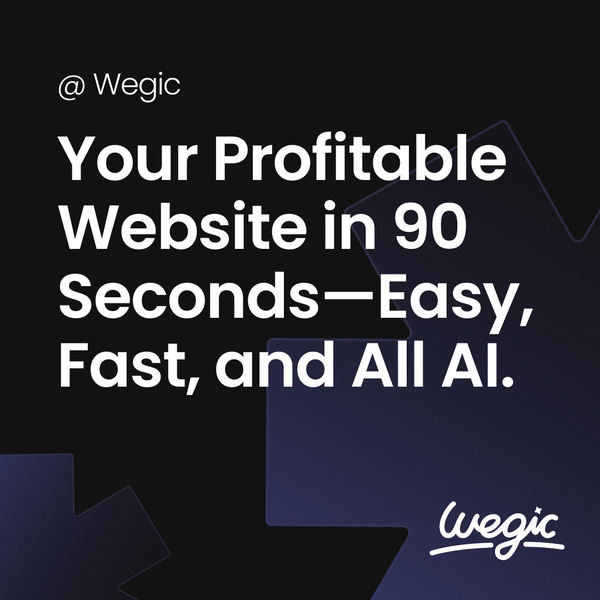Create Scan Code for Website Explained
Create Scan Code for Website Explained
Create Scan Code for Website
In today’s digital age, having a website that is accessible to all users is crucial. Website accessibility ensures that people with disabilities or limitations can easily navigate and access the content on your site. Not only is it important from an ethical standpoint, but it is also required by law in many countries. In the United States, for example, the Americans with Disabilities Act (ADA) requires that websites be accessible to people with disabilities.

The Ultimate Guide to Create Scan Code for Website
Create Scan Code for Website
AI web builders utilize advanced algorithms and machine learning to automatically design and build websites based on user input and preferences. This technology eliminates the need for manual coding, design, and development, making it accessible to individuals and business owners without technical skills.
One of the key features of AI web builders is their ability to generate unique designs tailored to the user’s needs. By analyzing thousands of templates and design elements, AI algorithms can create a visually appealing website that reflects the brand’s identity and message. Users can also customize these designs by adjusting colors, fonts, layouts, and images to create a website that stands out from the competition.
In addition to design customization, AI web builders also offer advanced features such as mobile responsiveness, SEO optimization, and e-commerce capabilities. These tools ensure that websites are optimized for various devices, search engines, and online transactions, making them more effective in reaching and engaging target audiences.
Another advantage of using AI web builders is their speed and efficiency. With traditional web design methods, creating a website from scratch can take weeks or even months. In contrast, AI web builders can generate a fully functional website in a matter of hours, saving time and resources for users. This rapid turnaround time allows businesses to quickly establish an online presence and start generating leads and sales.
Furthermore, AI web builders offer scalability and flexibility to accommodate the changing needs of businesses. Users can easily update, modify, or expand their websites without the need for technical expertise or assistance. This agility enables businesses to stay competitive in a dynamic market by adapting to new trends and technologies quickly.
Despite its many benefits, some may argue that AI web builders lack the personal touch and creativity of human designers. While it is true that AI algorithms are limited by predefined rules and patterns, these tools can still produce visually appealing and functional websites that meet the user’s requirements. Moreover, users can add their unique touch to the design by incorporating original content, images, and branding elements.
1. Type of Website
The type of website you want to build will have a significant impact on the cost. There are different types of websites, such as informational websites, e-commerce websites, portfolio websites, and more. Each type of website has its own unique requirements and features that can influence the overall cost of development. For example, an e-commerce website with features like online payment integration and inventory management will typically cost more to develop than a simple informational website.
2. Design
The design of a website plays a crucial role in its overall success. A well-designed website not only enhances the user experience but also reflects the brand’s identity and values. The cost of website design can vary depending on the complexity of the design, the number of pages, and the level of customization required. Custom-designed websites tend to cost more than using pre-made templates, but they offer a unique and tailored design that sets you apart from competitors.
3. Development
The development phase of a website involves turning the design into a functional website. This includes coding, testing, and optimizing the website for performance. The cost of development can vary based on various factors such as the technology stack used, the number of features and functionalities, and the level of customization required. Hiring skilled developers and programmers can also impact the overall cost of website development.
4. Content Management System (CMS)
A Content Management System (CMS) is a software that enables users to manage and update the content of their website without the need for technical expertise. Popular CMS platforms like WordPress, Drupal, and Joomla offer a range of features and customization options to build and maintain a website. The cost of a CMS can vary depending on the platform chosen and any additional plugins or extensions required for specific functionalities.
5. Domain and Hosting
Every website requires a domain name (e.g., www.yourwebsite.com) and web hosting to be accessible on the internet. The cost of a domain name can range from a few dollars to hundreds of dollars annually, depending on the domain extension and availability. Web hosting services also vary in price based on factors like storage space, bandwidth, security features, and customer support. It is essential to choose a reliable hosting provider that meets your website’s needs while staying within your budget.
6. Maintenance and Updates
Once your website is live, it will require ongoing maintenance and updates to ensure optimal performance and security. Regular updates to the CMS, plugins, and other software components are essential to protect against security threats and keep the website running smoothly. The cost of maintenance can vary depending on the complexity of the website, the level of support required, and any additional services like backups and security monitoring.
7. Additional Features and Functionality
Depending on your website’s goals and objectives, you may require additional features and functionality to enhance the user experience and achieve your business goals. These features can include social media integration, SEO optimization, email marketing tools, contact forms, and more. The cost of integrating these features will vary depending on the complexity and customization required.

Create Scan Code for Website Checklist
Create Scan Code for Website
In conclusion, choosing the best website builder for your small business ultimately depends on your specific needs and goals. Whether you are looking for a user-friendly option with pre-designed templates like Wix and Weebly, a visually stunning platform like Squarespace, an e-commerce-focused solution like Shopify, or a highly customizable option like WordPress, there is a website builder out there that will meet your needs. By carefully considering the features and functionality offered by each website builder, you can choose the one that best aligns with your business’s goals and budget. With the right website builder, you can create a professional-looking website that helps your small business stand out online and attract more customers.

